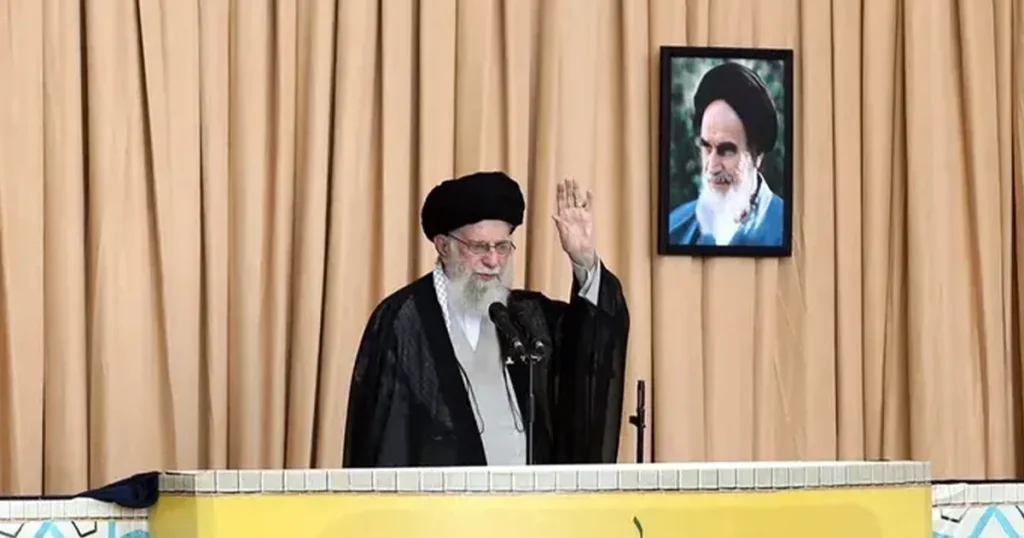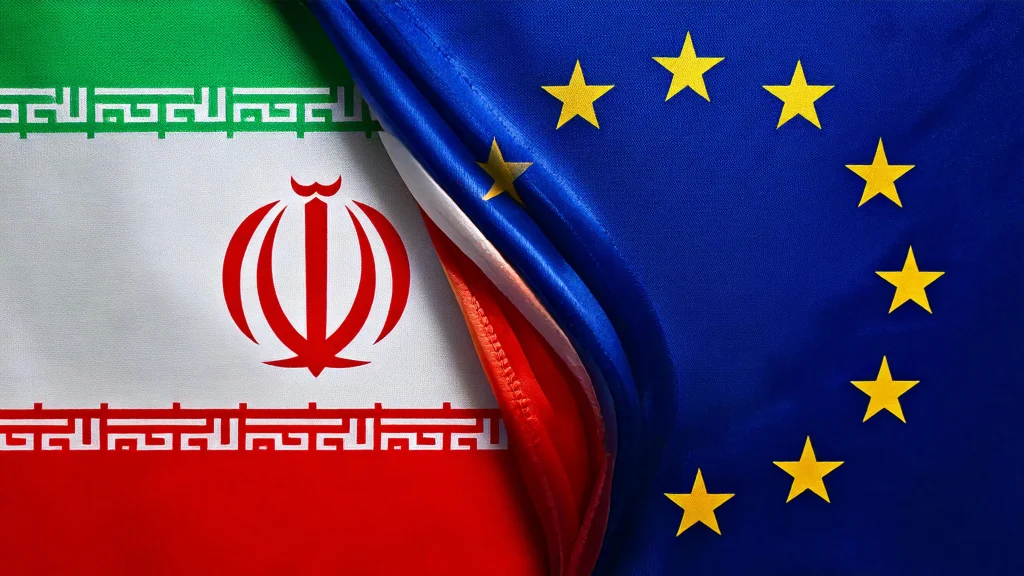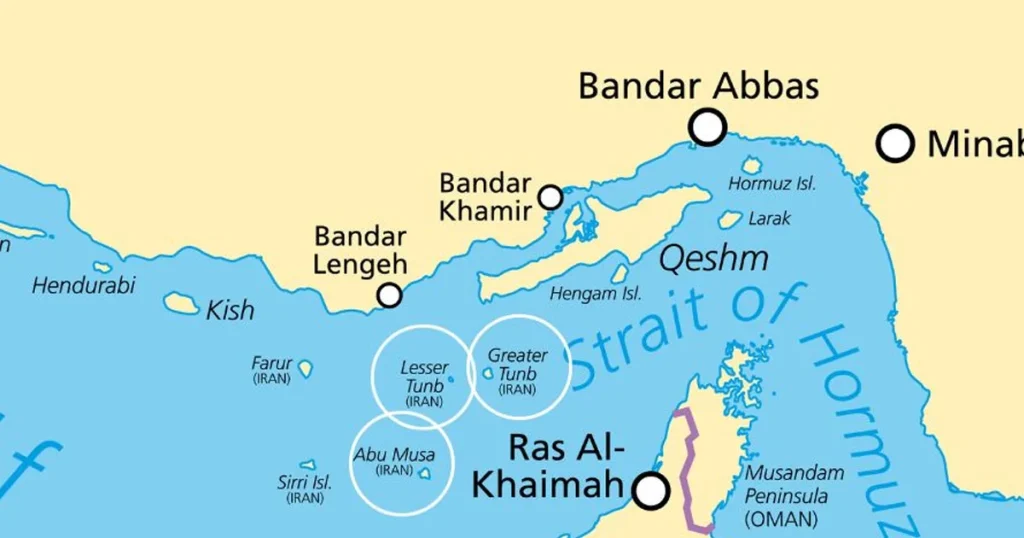In recent years, the Islamic Republic of Iran has escalated its rhetoric and actions in ways that suggest a desire to foment chaos not only in the Middle East but worldwide. This past Friday, Ayatollah Ali Khamenei, the Supreme Leader of the Islamic Republic, delivered a fiery sermon that should set off alarm bells across the globe. His message was a clear call for all Muslims to unite, and one can only conclude that the Islamic Republic, under his leadership, wants to lead an ideological war against the rest of the world.
Khamenei’s speech wasn’t just a religious sermon; it was a declaration of war in disguise, an invitation for Muslims everywhere to rise against what he deems the “oppressors,” a term the Islamic Republic frequently uses to demonize the West. Coupled with his inflammatory tweets and the Islamic Revolutionary Guard Corps’ (IRGC) aggressive activities, the conclusion becomes inescapable: the Islamic Republic is positioning itself as the spark for a broader, catastrophic conflict. This is not a matter of defense but an ideology bent on exporting war, framed as a religious duty.
The Islamic Republic’s End-Time Ideology
At the heart of the Islamic Republic’s agenda is an apocalyptic belief system. The regime sees itself as the torchbearer of the final battle between Islam and the rest of the world, an ideological war that will hasten the return of their messianic figure, the Mahdi. This dangerous, end-of-times ideology is not just political posturing. It is a core tenet of their governance and military strategy. They genuinely believe the time is now to unleash global upheaval, and they see themselves as the chosen harbinger of this chaos. This is no longer just Iran’s problem. It is a global threat.
The IRGC, which operates as a parallel state within the Islamic Republic, is the muscle behind this ideology. Designated by some countries as a terrorist organization, the IRGC’s reach stretches far beyond Iran’s borders. From orchestrating proxy wars in Yemen, Iraq, and Syria to facilitating terror networks across Europe and Africa, the IRGC is not a defensive force. It is an instrument of aggression. While countries like the United States have already proscribed the IRGC, the European Union has delayed taking critical action. This is despite the fact that Lithuania, an EU member, has already recognized the IRGC as a terrorist organization.
The question for Europe is simple: how much more evidence do you need?
The Urgency of Proscribing the IRGC
Proscribing the IRGC across Europe and the UK is not only an urgent matter of security but a moral imperative. To continue treating this organization as anything other than a terrorist entity is to ignore the overwhelming evidence of its role in destabilizing the Middle East and beyond. It is crucial for the safety of our citizens and the preservation of global peace that we act now. The IRGC is not just Iran’s problem but a threat to the civilized world, a network of terror with ambitions of global domination, fueled by a perverted interpretation of Islam that leaves no room for dissent or coexistence.
The Islamic Republic’s desire to ignite a broader war stems, in part, from internal struggles. The regime is facing unprecedented pressure from its own people, who have grown tired of its corruption, repression, and economic mismanagement. Protests and uprisings are frequent, despite the regime’s brutal crackdowns. This growing unrest could be another factor driving the regime’s belligerent foreign policy. Creating an external enemy serves as a distraction from its internal failures. However, this is not a war Iran seeks. This is a war the occupiers of Iran, the Islamic Republic, want to impose on the world.
Differentiating Iran from the Islamic Republic
It is important to clarify that Iran, as a country and a people, does not seek war. The people of Iran have suffered for decades under the rule of the Islamic Republic. They have no interest in global conflict or the apocalyptic dreams of their so-called leaders. What we are witnessing is not the will of Iran but the will of the Islamic Republic, an occupier that hijacked a proud nation in 1979 and has since used its resources, both human and material, to pursue a violent, expansionist agenda.
The Islamic Republic has destroyed Iran’s reputation on the global stage, turning a country once respected for its culture and contributions to civilization into a pariah state. The world must understand that opposing the Islamic Republic is not the same as opposing Iran. The fall of the Islamic Republic would not be the fall of Iran but its liberation.
The Time to Act is Now
If the world does not act now to curtail the Islamic Republic’s ambitions, we could soon be facing a conflict on an unimaginable scale. This is not just a clash of armies. It is a clash of ideologies. On one side, we have a regime that wants to drag the world into a religious war, an ideology that sees compromise as weakness and destruction as divine duty. On the other side, we have the free world, which must now decide whether to continue appeasing this regime or to take the decisive action necessary to stop it.
The first step must be for the EU and the UK to proscribe the IRGC in its entirety as a terrorist organization. Lithuania has already set the example, and there is no longer any excuse for inaction. The Islamic Republic must be toppled, and the people of Iran must be freed from its grip. The alternative is too grim to contemplate: a bloody, protracted war between the Islamic world and the rest of the civilized world.
We have seen this story before. Let us not repeat it.






